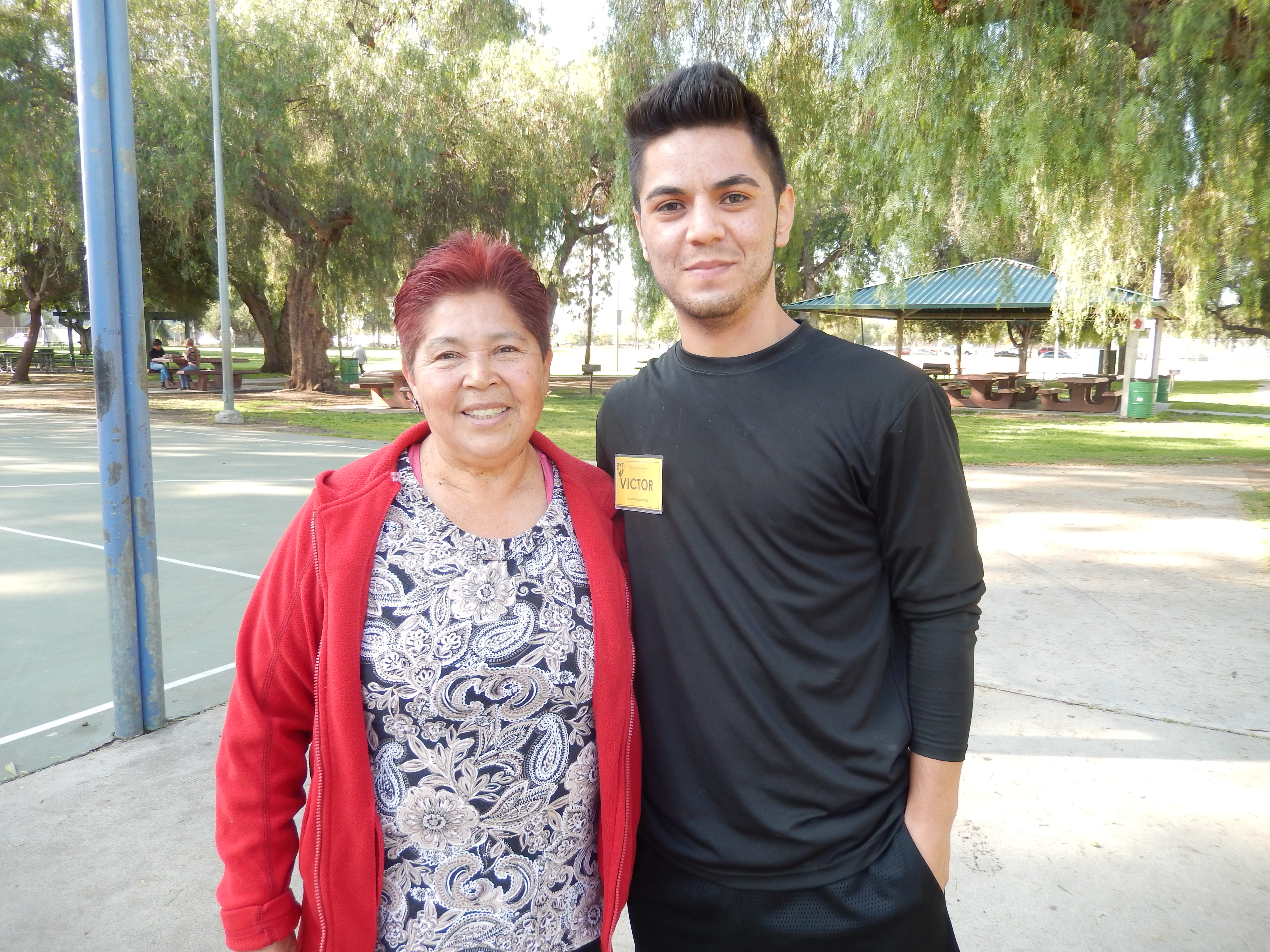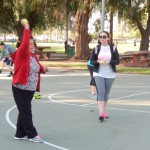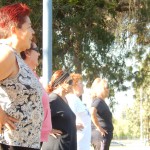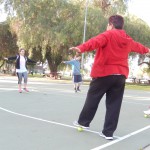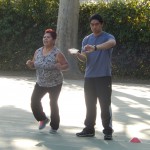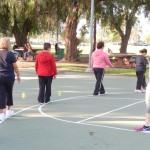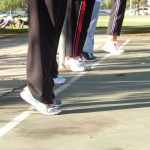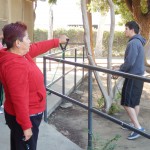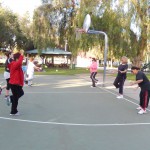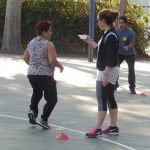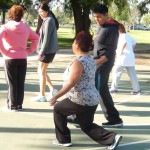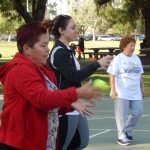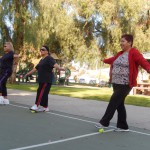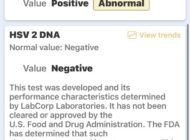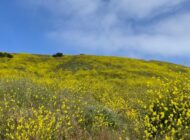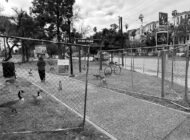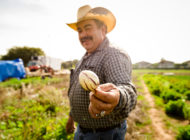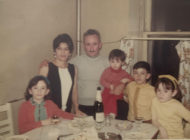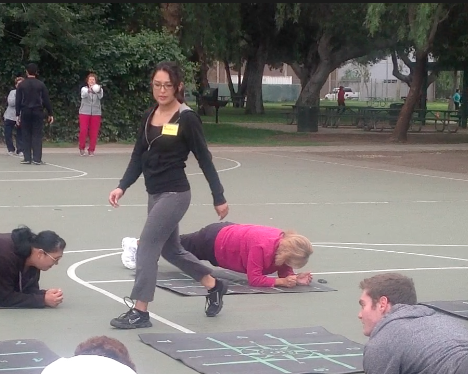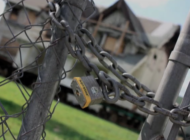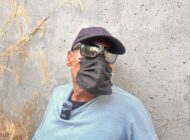“My children have always been first, next them, last them, and for me? Nothing! It’s fair that now I do something for me, even if this is the only thing I invest my time in,” Peña said.
By NATHALY ALCALÁ
Translated by NANCY OY
EL NUEVO SOL
After putting years of effort and dedication into raising children in a home filled with values and love, Aurelia Peña said, “now it’s my turn to improve my health.” Peña, 64, joined the 100 Citizens program, located in San Fernando Valley, after going to the doctor and learning she was prone to diabetes.
“It was in that moment that I told myself, ‘what are you waiting for, Aurelia? Let’s go,'” said Peña, resident of Van Nuys. Even though she lives a bit far from the park, she never misses any of the classes offered three times a week. She said this program has changed her life for the better.
Steven Loy, professor of kinesiology at California State University, Northridge (CSUN), established the 100 Citizens program, which focuses on exercising and diabetes prevention, in 2011.
A kinesiology student at CSUN, Victor Solano, 22, said the student trainers divide the participants into groups depending on the age and the physical performance of each person.
“In this program there is a group of adults from 20 to 40 years old, and there is a group of adults from age 50 and older, and the intensity of the exercises is different,” said Solano, who trains participants of 100 Citizens on Mondays, Tuesdays and Fridays.
Peña belongs to the older group. However, her energy and strength don’t show her age. Peña is a 5-foot-1, friendly, always smiling Mexican woman with red hair.
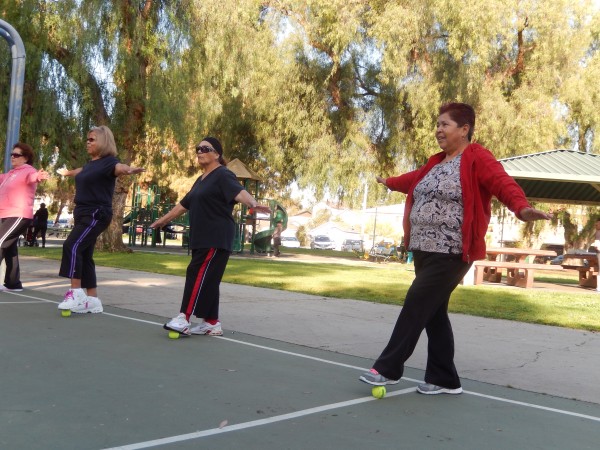
Aurelia Peña completing balancing exercises along with other participants of the 10o Citizens programin the City of San Fernando. Photo: Nathaly Alcalá / El Nuevo Sol
Marisol Díaz, 26, a kinesiology student at CSUN and a student trainer said Aurelia is enthusiastic when she arrives to the program. “She focuses plenty and always wants to learn the exercising techniques. She asks questions and she motivates herself and her teammates.”
Díaz has known Peña for a year and assures she has seen how Peña has improved in flexibility and physical prowess. “I see that she is stronger and flexible. She aways gives the maximum,” Díaz said.
Peña joined 100 Citizens in September 2013 weighing 178 pounds. Perhaps due to her strength and dedication, she now weighs 165 pounds. However, she said she plans to lose more weight because she wants to have the same weight she had when she was younger.
What she likes most about the program is not losing weight, but the happiness she gets from the program.
“What motivates me to come everyday is feeling good. Exercising gives me energy and I feel at ease, happy, and that is why I’m here,” Peña said.
- Aurelia Peña completes an exercise using a tennis ball. Photo: Nathaly Alcalá / El Nuevo Sol.
- Aurelia Peña smiles while she completes a group physical activity. Photo Nathaly Alcalá / El Nuevo Sol.
- Participants of 100 Citizens complete a balance exercise using a tennis balls. Photo: Nathaly Alcalá / El Nuevo Sol.
Stress, preoccupations, anxiety, and depression can influence weight gain. This was the case for Peña, a single mother who has fought alone to see her children grow up on the right path.
“I feel like even if I don’t eat, I gain weight,” said Aurelia Peña, who believes stress has been the cause of her weight gain. Peña came to the United States when she was 40-years-old and now works in a college. She said she doesn’t work 40 hours, which makes it hard to pay rent and eat healthy.
“I have a sick son in Mexico that has schizophrenia and once in a while I send him [some money] here and there because there isn’t enough,” she said, with sadness.
Peña said eating healthy in California is complicated, since vegetables and fruit cost more than a hamburger, ice cream, fries, or chocolate. For this reason she opts to buy the cheapest food without caring if it is or isn’t healthy. Peña, who was born in the capital of Mexico, said she ate better in her native country because the food was all organic and more economical.
“In Mexico I didn’t have money for the junk food. So, I tried to only eat healthy food, but possibly in Mexico it was healthier because everything was organic,” Peña said. She said she was thinner in Mexico since eating healthy was possible.
Diabetes has been present in her family, including her mother, who died approximately three years ago in Mexico.
I am leaving, I think we are no longer going to see each other.
Those were the last words Peña heard her mother say before her mother returned to Mexico. Peña never thought her mother would tell her that. However, she responded: “No, I ask you that first I leave, then you.”
Eight days later, her mother died. Peña said her mother possibly died because she was alone and had no one to take care of her or make her food.
“My understanding is that when someone has diabetes the person has to eat hourly, but my mom was alone,” she said, with a knot in her throat and her voice broken.
“I don’t know how or when she left. The only thing I know is she is no longer here,” Peña said.
However, Peña’s mother wasn’t the only family member with diabetes. Her sister has diabetes and high pressure.
“I’ve invited my sister to the program, but she doesn’t want to,” Peña said. She wishes her sister would participate in the program because she believes the program will change her sister’s life the way it changed hers.
“My sister is in treatment but doesn’t want to talk,” she said, with a worried tone.
For Peña, her children have always been her priority and she’s always worked hard to ensure her family is never in need. Right now she lives with her 20-year-old daughter, who sometimes tells her mother not to assist the program when Peña is getting a cold. Peña always tells her, “No [darling] this is my hour, mine and only that.”
Peña said that now that her children are older, it’s her turn to recover her figure and her self-love.
“My children have always been first, next them, last them, and for me? Nothing! It’s fair that now I do something for me, even if this is the only thing I invest my time in,” Peña said. She assures that the time for exercise is hers and only hers.
According to Peña, throughout the years she has started to want a little more and said that if she doesn’t look out for herself, no one will.
Peña said she attends the program by herself and for herself. “I’m going to continue in the program until God gives me life.”
For more information about 100 Citizens, visit www.100citizens.org
- Aurelia Peña participates in a game of balance and jogging using a container filled with water. Photo: Nathaly Alcalá / El Nuevo Sol.
- Participants of 100 Citizens dribbling tennis balls while they practice in an equilibrium exercise. Photo: Nathaly Alcalá / El Nuevo Sol.
- Peña and other participants of the program completing a tiptoe exercise to tone the muscles. Photo: Nathaly Alcalá / El Nuevo Sol.
- Aurelia Peña does an exercise with an elastic band to strengthen her arm muscles. Photo: Nathaly Alcalá / El Nuevo Sol.
- Aurelia haciendo and other members of 100 Citizens completing an exercise using a tennis ball during one of the sessions at the San Fernando Recreational Park in San Fernando Valley. Photo: Nathaly Alcalá / El Nuevo Sol.
- Aurelia Peña participates in a game where she has to take water in a container without dropping it and jogging at the same time. Photo: Nathaly Alcalá / El Nuevo Sol.
- Aurelia Peña, 64, performs an exercise to tone and exercise the leg muscles. Photo: Nathaly Alcalá / El Nuevo Sol.
- Aurelia Peña dribbling a tennis ball. Photo: Nathaly Alcalá / El Nuevo Sol.
- Aurelia Peña doing a balance exercise with other 100 Citizens participants in the City of San Fernando. Photo: Nathaly Alcalá / El Nuevo Sol
Tags: #100CitizensCSUN 100 Citizens 100 Citizens Program 100 Ciudadanos California City of San Fernando CSUN Kinesiology diabetes health Latinos Nancy Oy Nathaly Alcalá prevención de diabetes Salud






